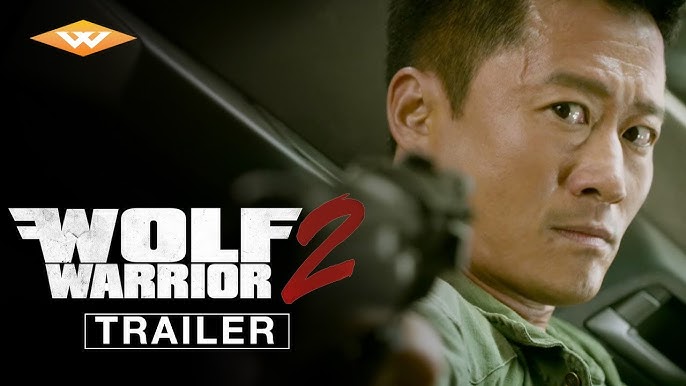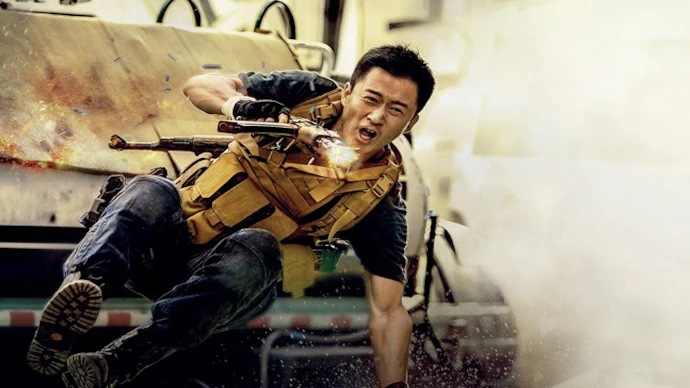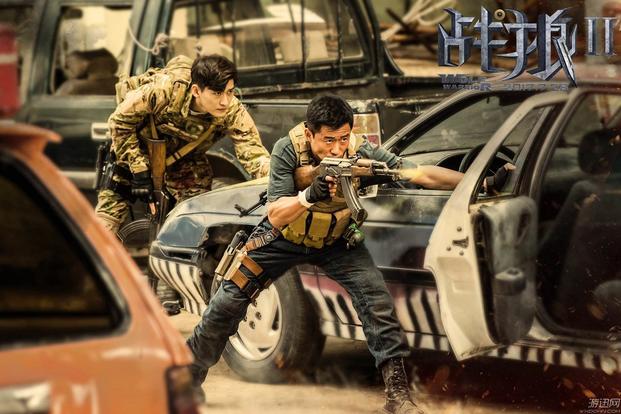Wolf Warrior II (2025) | Wu Jing – The Soldier Returns

When Wolf Warrior II was released in 2017, it shattered box office records and cemented Wu Jing as both a leading man and a director capable of blending relentless action with stirring patriotism. Now, eight years later, Wolf Warrior II (2025) storms back onto screens, promising an even bigger, grittier, and more emotionally charged continuation of Leng Feng’s journey.
The trailer wastes no time in setting the tone: smoke rising over a war-torn landscape, civilians fleeing as chaos erupts, and Wu Jing’s Leng Feng stepping into frame—battle-hardened, scarred, yet unbroken. His eyes reveal both weariness and resolve, the kind of gaze born from too many fights survived and too many losses endured.
This sequel expands the battleground beyond borders. Where the first films placed Leng Feng against mercenaries and insurgents, Wolf Warrior II (2025) plunges him into a global conflict where superpowers, private armies, and shadowy corporations collide. The sense of scale is monumental, with action stretching from African deserts to bustling Asian ports, from jungle ambushes to urban warfare.
Wu Jing once again delivers a performance of sheer physicality. Every punch, kick, and tactical maneuver feels grounded in military precision, yet layered with raw emotion. Leng Feng is no longer simply a soldier—he is a man searching for redemption, carrying ghosts of fallen comrades while still refusing to surrender his humanity.
The action sequences teased in the trailer are staggering. A convoy ambush in the rain escalates into a bullet-streaked ballet; a brutal underwater knife fight leaves audiences breathless; and the climactic tank battle across a crumbling bridge looks destined to become an instant genre classic. Each set piece promises not only spectacle but a visceral reminder of the costs of war.
At the same time, the trailer hints at a story with deeper resonance. Leng Feng is not fighting only for victory but for the powerless—the displaced families, the children caught in the crossfire, the voices drowned out by gunfire. His role as protector elevates him from warrior to symbol, embodying the ideals of courage and sacrifice in a fractured world.
The supporting cast adds new intrigue. A mysterious foreign ally, glimpsed in brief flashes, may blur the lines between friend and foe. A ruthless mercenary leader, bristling with arrogance and firepower, emerges as the central antagonist, a mirror of what Leng Feng could become if stripped of his conscience.
Visually, the film leans into grit and grandeur alike. Dust, sweat, and blood mark every frame, while sweeping aerial shots capture the scope of battlefields that stretch for miles. The cinematography revels in both chaos and clarity, ensuring that every explosion, every clash of steel, feels immediate and personal.

The score underpins the trailer with pounding drums and mournful strings, evoking both the relentless drive of combat and the sorrow that lingers in its wake. Music swells not at moments of triumph, but at moments of sacrifice—reminding viewers that victory here is never clean.
By the trailer’s end, Wu Jing delivers a line that crystallizes the film’s essence: “A true warrior fights not for himself, but for those who cannot.” It is a declaration, a promise, and a challenge to every force that dares stand in Leng Feng’s way.
Wolf Warrior II (2025) positions itself as more than a sequel—it is a continuation of a legend. It embraces the adrenaline of large-scale action cinema while grounding its heart in themes of duty, sacrifice, and resilience. If it delivers on its trailer’s promise, it may once again redefine the standard for action epics in modern cinema.
Related movies :
Related movies :
Related movies :
Related movies :
Related movies :
Related movies :
Related movies :











